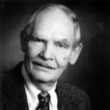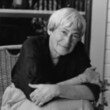Foundation
Description
More Details
9780553293357
9780553900347
9780307749710
Table of Contents
From the Book
Excerpt
Similar Series From Novelist
Similar Titles From NoveList
Similar Authors From NoveList
Published Reviews
LJ Express Reviews
Asimov began the seminal future history series dubbed "Foundation" in the late 1940s with Foundation, Foundation Empire, and Second Foundation (books three, four, and five, respectively) and came back to it in the 1980s (Foundation Edge, etc.), posthumously polishing it off with Forward in 1993. Though written last, Forward is placed second in the seven-book* series and centers on Hari Seldon (many think this character mirrors Asimov himself) who created psychohistory, "a mathematical way of analyzing human society that ends by predicting the future." After ruining a villainous, anti-Imperial plot on planet Trantor, the charismatic and, as they say in Boston, "wikked smaht" Seldon becomes First Minister to Emperor Cleon I. While Seldon escapes an assassination attempt, Cleon doesn't, which puts Seldon out of a job. Subsequently, Seldon continues working with psychohistory; his physical aging and the loss of his loved ones mirror the regression of universal civilization and foreshadows the fall of the Galactic Empire that Asimov chronicled in book one. Dialog frequently carries the plot and action, and characters sometimes seem a little stiff since the books are so concerned with societal change. An especially lucid writer, Asimov is classed in nine of the ten DDC ranges (he missed the 100s). He's called The Grand Master for a reason. Dude factor: Best. Sideburns. Ever. (See LJ's original review.) Copyright 2009 Reed Business Information.

















































